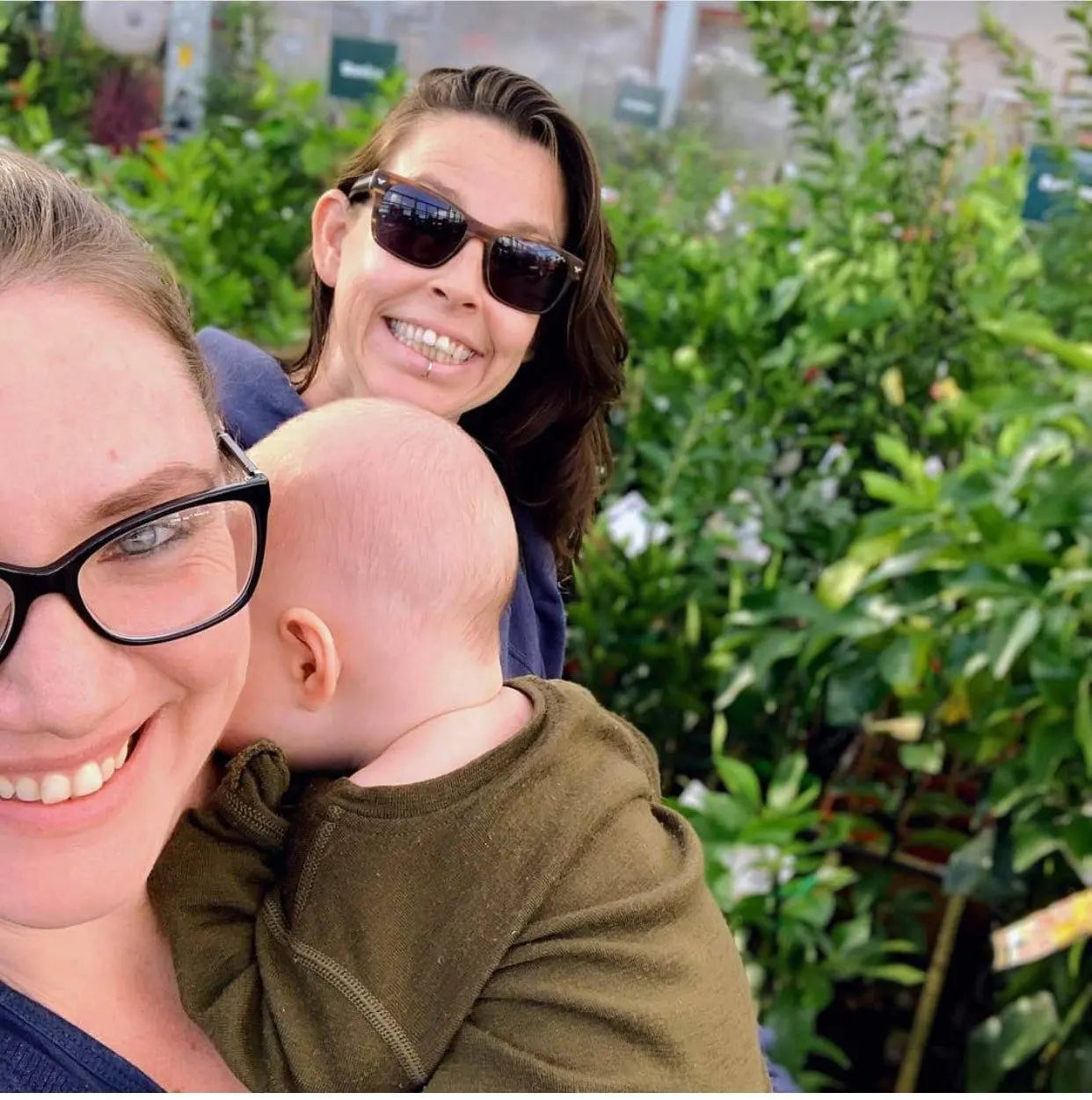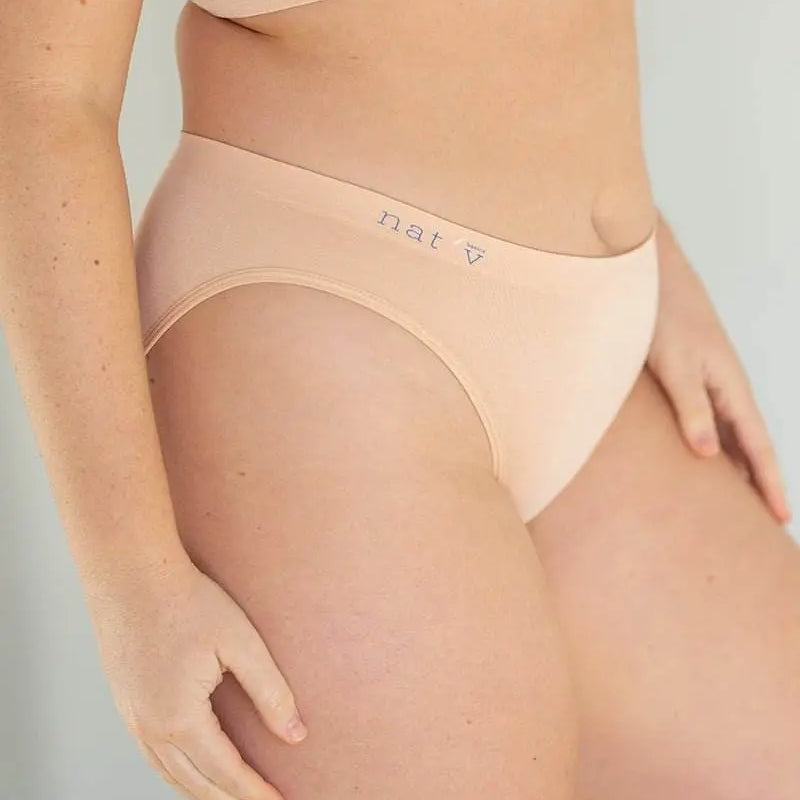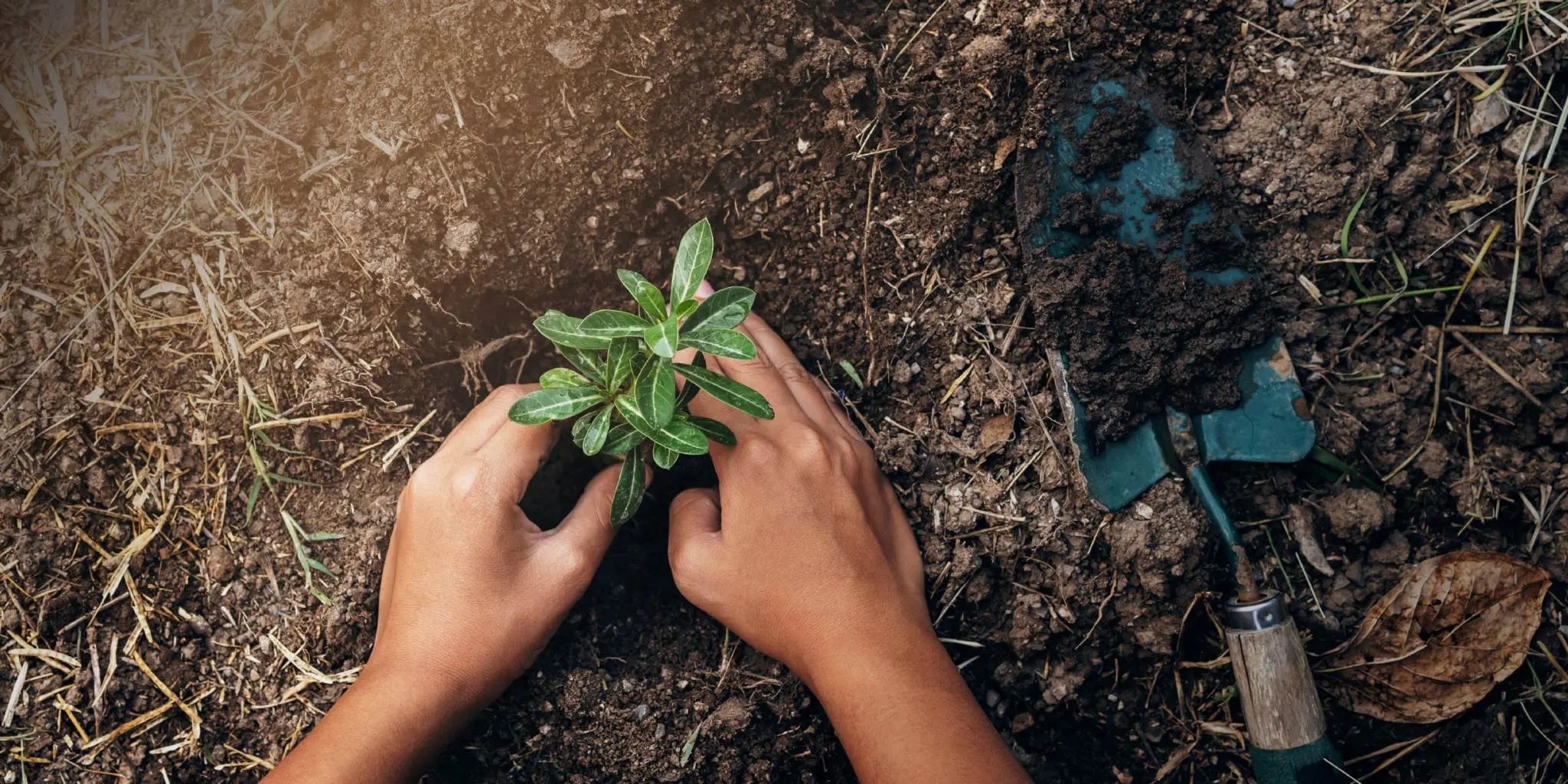Making Sustainable Living Sustainable For Your Life - By The Better Human Project

Living a more sustainable lifestyle is all about choosing the more eco option, more of the time. So when you’re looking for ways to live more sustainably, look for things you can easily make part of your current lifestyle, it will be much easier to maintain.
In the words of the zero waste chef, Anne Marie Bonneau;
“We don’t need a handful of people doing zero waste perfectly. We need millions of people doing it imperfectly.”
My wife and I certainly don’t live a perfectly sustainable life, but there are lots of little things we do everyday that I like to think add up. I’ll share a few key areas of our life we were able to take a closer look at to see where we might be able to do things a little bit better. Hopefully they might spark something for you too.
Composting Your Food Waste
Full disclosure: we live in an apartment building. There is no communal compost garden or organics bin. While it isn’t as straightforward for unit dwellers as it is for those with a garden - it can be done!- Our setup at home: One Bokashi Compost Bin (which I empty at the local community garden) and one worm farm that sits unobtrusively on our balcony.
So why was composting such a game changer for us?
It meant we didn’t need plastic bags anymore to carry wet waste to our buildings landfill bin, but more than that, it really cemented for us that before we bring anything ‘new’ into our home (groceries included) we needed to have a sustainable way for it to leave our home.
Once we thought about it like that, a lot changed for us. If you’re going to think about how to get rid of food scraps in a sustainable way, it makes sense that you think about how to get rid of everything in a more environmentally conscious way.
We noticed over time that we were finding more creative things to do with leftovers or fruit peels which used to only have one lease on life before they hit the bin.
Some things we make with our food scraps:
- Surface Cleaners
- Apple Cider Vinegar
- Veggie Stock
- Plant Food
We also saw a big reduction in our food waste overall. When everything in the fridge, fruit bowl or cupboard needs an exit strategy, you become a lot more discerning about what comes home with you. We stopped overshopping and got better at meal planning so we only bought what we knew we would eat.
Monitoring Your Household Waste
If you want to reduce the waste coming in and out of your home, the obvious place to start is with your bin.
Chucking stuff in the bin is such an autopilot move for us humans that if I asked you how many items you throw in your bin at home, or even what the last thing you put in the bin was, you might struggle to remember.
So keep an eye on your bin for a week and start to categorise the waste. I’m not talking about starting a household Google Sheet to track every piece of rubbish (unless spreadsheets are your kink, then go nuts 😉), but just pay attention to it.
You may or may not be surprised by the repeat offenders taking up space in your kitchen bin, and you may or may not be surprised that the landfill bin is not the only option for a lot of them.
Here’s how we handle some of those harder to recycle items:
- Soft plastics - we take them to our local Coles or Woolies RedCycle collection bin
- Toothpaste tubes - we take them to our local Biome store who collect for Terracycle
- Polystyrene - we take it to our local council’s Resource Recovery Centre
- Light bulbs - We take them to Ikea
- E-Waste - We take them to Substation 33 who use them to skills train people in electronics repairs
Reduce Your Recycling
Now this one can sound counterintuitive at first, recycling is good, right? Well, it’s certainly better than the red bin alternative, but it’s still not the best. A lot of resources go into recycling so if you can avoid the recyclable waste altogether (or at least a little bit), all the better.
So once your landfill bin has had a bit of a detox, take a fresh look at your recycling bin. Are there things you’re buying regularly in cardboard, glass or hard plastic that maybe you could get in a refillable version? Whether it’s taking your own containers to a bulk food store for your pantry items, or just carrying your own reusable produce bags with you at the supermarket, there could be a simple option that can make a difference.
Switch To Renewable Energy
If you’re a renter, or live in an apartment, you may be about to skip over this tip - but wait!
Installing solar panels on your roof is not the only way to do your bit for the environment when it comes to the energy you use in your home.
A lot of electricity providers in Australia have a GreenPower option that you can opt in to.
What’s GreenPower?
Put simply, if you switch to GreenPower, either through your current electricity provider or a new one, you’re committing your electricity provider to buy the equivalent amount of energy that you use, from renewable energy sources.
It doesn’t necessarily mean that the power coming into your home will be from renewable energy sources as it will still be coming from the grid (which is of course fed by a mix of energy sources including lots of fossil fuels).
But, it will increase demand from the electricity retailers for renewable energy because if you’ve paid them for GreenPower, they have to prove they’ve bought the equivalent amount from renewable sources. The more households demand renewable energy, the more renewable energy projects will be needed to keep up with demand so we will see more of these projects funded and come to fruition… Hazaar!
Small Sustainable Steps
So there you have it; you don’t need to rush out and replace everything you own with an “eco version” (that would be highly unsustainable!).
Just pay a little extra attention to what comes into your home (can you get it in less packaging?) and how it goes out (can it be composted? Reused? Recycled?). Oh and switch to GreenPower tout suite! This has to be number one when it comes to least effort/most impact for living more sustainably.
0 comments





